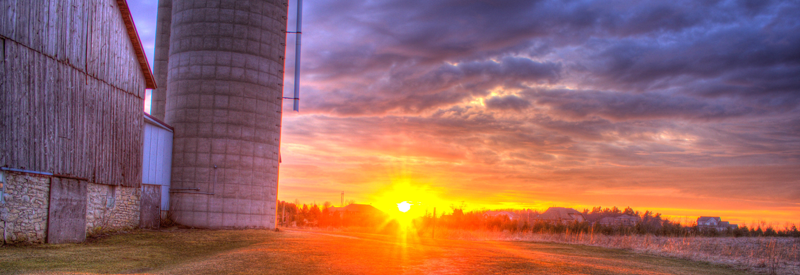The release on May 6 by the IPBES of a landmark Global Assessment on the state of the ecosystem sent shockwaves around the world. We have a slice of responses to the forecast of over one million species facing extinction. We also serve up some interesting opinions, news on new activity in the space, a look at whether corporate moves toward a more regenerative food system are legitimate efforts or greenwashing, and more.
In the Headlines:
Responses to the IPBES Global Assessment filled the news last week. While most of the coverage focused on the loss of animal species, several outlets offered predictions of what this means for plant life and, more specifically, for soil.
Microbes Matter: What the Biodiversity Report Means for Soil
In response to the IPBES Global Assessment, the Natural Resource Defense Counsel (NRDC) takes a closer look at the role of agricultural subsidies in perpetuating the degradation of soil health and loss of biodiversity. Read more here.
What a Biodiversity Crisis Means for Business
Economic transformation on the scale envisaged by the IPBES Global Assessment would result in massive implications for the world’s business community. It raises the prospects of fundamental changes to everything from planning policy and supply chain management to corporate reporting and product standards. Read more here.
Opinions:
Green New Deal Will Address Climate, Revitalize Food System
“We need a rapid transition from chemical- and energy-intensive industrial monoculture production to organic, diversified, and regenerative practices that build healthy soils.” Read more here.
Jeremy Grantham Says Investors Should Be ‘Intrigued’ by Environment-friendly Funds
GMO co-founder says investors should be “jumping at the chance” to invest in climate change strategies. Read more here.
New Tools:
Regenerative Funds Invest in Environmental Health
GatherLab recently released the first publicly-available, regenerative funds list, a catalog of investment opportunities promising to direct capital to a range of activities capable of restoring systems and mitigating climate change. Read more here.
A Move in the Right Direction?
Recent activity in the agriculture and agribusiness sector indicate companies are taking a stronger position on sustainability. Does this indicate a shift toward a more regenerative food system or does this risk potentially greenwashing legitimate regenerative agriculture efforts?
Ocean Spray Commits to Sustainable Farming
700 cranberry growers will verify their fruit through the Sustainable Agriculture Initiative Platform by 2020. The company website now highlights Regenerative Cranberry Agriculture, Sustainable Supply Chain, and Packaging with Purpose. Read more here.
Melbourne to Get a Sustainable Farm in the Sky
The Skyfarm Project is set to bring a rooftop urban farm and education hub to downtown Melbourne. In addition to providing produce for hospitality venues on the rooftop and the charity OzHarvest, the project expects to host 10,000 sustainability students per year. Read more here.
Syngenta and The Nature Conservancy Team Up on Innovation for Nature
The two organizations are coming together to identify and test new innovations and technology that can benefit farmers and the environment and create change in agronomic practices for better soil health, resource efficiency, and climate resilience. Read more here.
Tell us what you think! Share your thoughts with us on Twitter or Facebook and use the hashtag #RaisingRegenerative.
What We’re Reading:
How Carbon Farming Can Help Stop Climate Change in Its Tracks
The Nation features a look back at extreme weather events of the last five years, their link to Climate Change, and what regenerative agriculture can do to reverse an alarming trend. Read more here.
What We’re Listening to:
Why Ecological Farming Makes More Business Sense
RFSI Forum speaker Paul McMahon of SLM Partners joined one of the original Investing in Regenerative Agriculture podcasts to discuss projects around the world and why regenerative agriculture is an up-and-coming market for investment dollars. Listen here.
Paul McMahon will be presenting at this year’s Regenerative Food Systems Investment Forum – learn more here.
Biggest Little Farm Brings Regenerative Ag to the Big Screen
FRESH AIR reports on a modern day “Green Acres,” a couple who leave L.A. to start an organic farm on a “dry and soil-depleted 200-acre parcel.” Their results are chronicled in a new documentary.
Listen here.
In Case You Missed It:
Five Investment Vehicles Changing the Way We Invest in Agriculture
In the past decade, agriculture has become a popular class for investors and as interest in regenerative ag has grown, so has the opportunity to invest in this climate-conscious movement. Raising Regenerative profiles five companies who are blazing the trail for investment in regenerative agriculture and food systems, each using a unique approach. Read more here.
